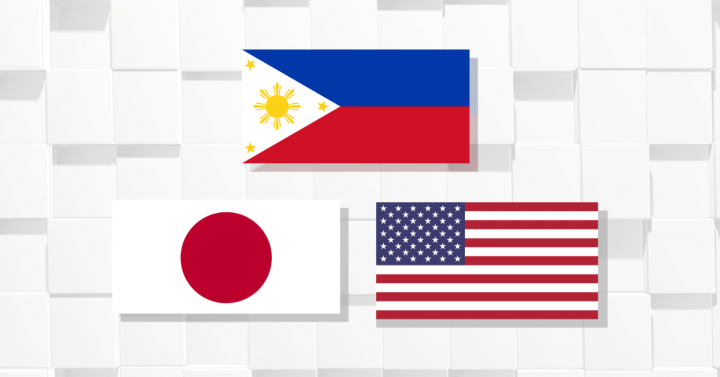J. Albert Gamboa l April 12, 2024 l The Manila Times

THE first-ever Trilateral Summit between leaders of the Philippines, Japan and the United States is taking place now in Washington, D.C. Issues of colonization, military bases and war crimes have been intertwined with the collective history of the three countries from the onset of the 20th century. Yet they have put these issues aside to focus on their current concerns about the rising geopolitical tensions in our part of the world.
Since he was sworn into office less than two years ago, President Ferdinand Marcos Jr. has increasingly steered the country’s foreign policy direction toward the West. Last year, he granted the US access to four military sites in addition to the five existing bases under the Enhanced Defense Cooperation Agreement of 2014.
Australia and the Philippines have also started to conduct joint air and sea patrols in the South China Sea. At the same time, Marcos is seeking to expand maritime cooperation with Germany, India, Vietnam and South Korea to boost regional security.
In contrast, former president Rodrigo Duterte’s foreign policy veered toward China — the world’s second-largest economy, next only to the US. The Asian superpower has emerged as the Philippines’ biggest trading partner over the past eight years, starting with the Duterte administration.
During his first state visit to Beijing in October 2016, Duterte pursued a policy of rapprochement or harmonious relationship with Chinese President Xi Jinping. This resulted in investment pledges worth $24 billion, which did not materialize immediately because it takes so long to secure approval for foreign direct investments in the Philippines due to the bureaucratic government process.
According to the Philippine Statistics Authority, the total value of approved foreign investments from China reached $164.6 billion between 2017 and 2021. Official development assistance (ODA) in the form of loans and grants from both China and the Beijing-led Asian Infrastructure Investment Bank (AIIB) amounted to a total of $2.5 billion while Duterte was in power.
Two bridge projects in Metro Manila — the Estrella-Pantaleon Bridge between Makati and Mandaluyong and the Binondo-Intramuros Bridge in Manila — were actually Chinese grants that do not need to be repaid. The following projects were funded by ODA loans from China: the Samal Island-Davao City Bridge; the Chico River Pump Irrigation Project; the New Centennial Water Source of the Kaliwa Dam Project; and the Health System Enhancement to Address and Limit Covid-19 (Heal Project). On the other hand, the Metro Manila Flood Management Project was partially funded by the AIIB.
Some of the notable investments at various stages of development include the $1.5 billion petrochemical refinery processing plant complex of Fengyuan Holdings in Davao Occidental; the $500 million infrastructure construction project for nationwide WiFi connectivity of the Tranzen Group and CITIC Guoan Information Technology; the $50 million iron processing plant of Adnama Mining Resource Inc., Fu Properties Inc., and Xiamen C&D Inc. in Agusan del Norte; the $40 million collaboration of the Department of Energy and Shanghai Electric Group Co. Ltd. to promote indigenous and renewable energy resources; the framework agreement between the local government of Pampanga and Macrolink Group worth $1.5 billion to construct and develop the Yatai Industrial Park; and the 250-megawatt South Pulangi Hydroelectric Power Plant in Bukidnon funded by China Energy Co. Ltd.
Other local industries that benefited from the rapprochement policy include tourism, agriculture and telecommunications. Not to mention Chinese government donations to the Armed Forces of the Philippines, the Department of Social Welfare and Development, the Department of Education, the Bureau of Fire Protection, and calamity-stricken communities nationwide.
Marcos should keep all these in mind when he meets with US President Joe Biden and Japanese Prime Minister Fumio Kishida at the White House. After all, his campaign promise in 2022 was to pursue an independent foreign policy that balances relations with all nations so that the Philippines will be “a friend to all and an enemy of none.”
***The author is the chief finance officer of Asian Center for Legal Excellence and vice chairman of the Finex Ethics Committee. The opinion expressed herein does not necessarily reflect the views of these institutions and The Manila Times. #FinexPhils www.finex.org.ph . Photo from Philippine News Agency.

